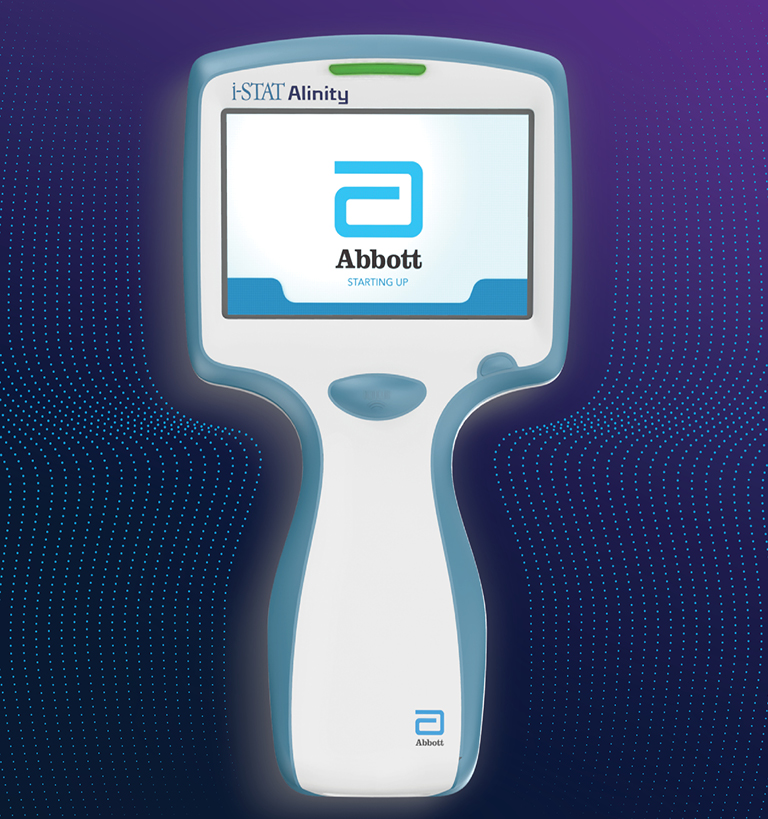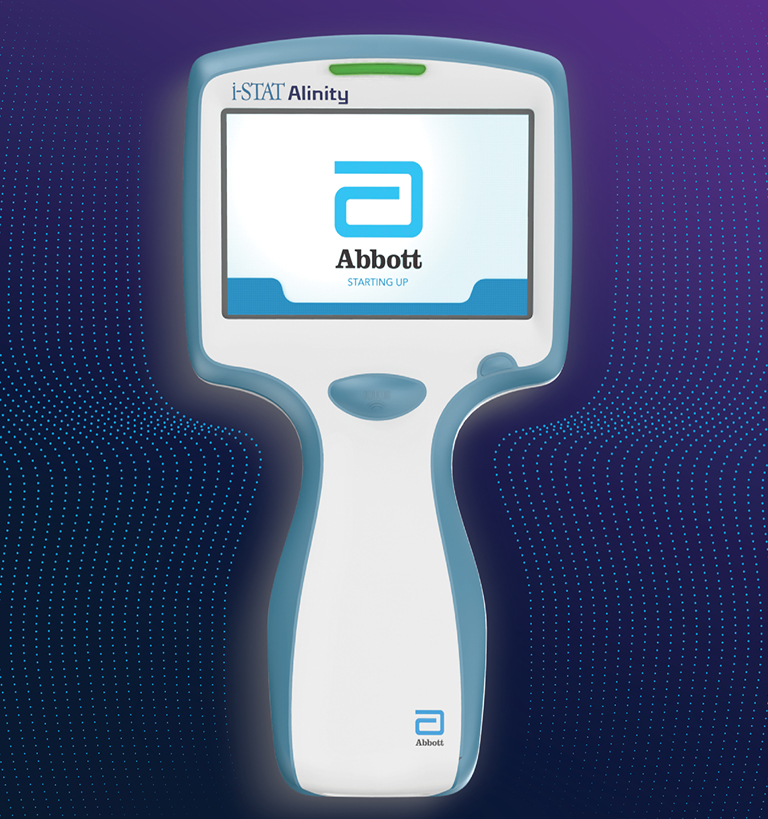Global Point of Care



Risk factors for PC-AKI include chronic kidney disease, critical illness, contrast-enhanced imaging done as an emergency, older age, diabetes, use of nephrotoxic drugs and reduced kidney function.2
lab-quality creatinine results in minutes, not hours
Contrast media can pose serious health risks to patients with chronic or acute renal insufficiency - including potentially fatal nephrogenic systemic fibrosis (NSF), a debilitating and potentially fatal disease that involves the skin, muscle and internal organs.1
Point-of-care (POC) creatinine devices allow rapid measurement of creatinine levels and calculation of estimated glomerular filtration rate (eGFR). This can show whether the kidneys are working properly.
Creatinine test results from the lab could take hours, disrupting the efficiency of the department or clinic and causing cancellation of some radiological procedures.
lab-quality creatinine results in minutes, not hours
Contrast media can pose serious health risks to patients with chronic or acute renal insufficiency - including potentially fatal nephrogenic systemic fibrosis (NSF), a debilitating and potentially fatal disease that involves the skin, muscle and internal organs.1
Point-of-care (POC) creatinine devices allow rapid measurement of creatinine levels and calculation of estimated glomerular filtration rate (eGFR). This can show whether the kidneys are working properly.
Creatinine test results from the lab could take hours, disrupting the efficiency of the department or clinic and causing cancellation of some radiological procedures.



Risk factors for PC-AKI include chronic kidney disease, critical illness, contrast-enhanced imaging done as an emergency, older age, diabetes, use of nephrotoxic drugs and reduced kidney function.2
critical insights in a matter of minutes
The i‑STAT Alinity, which calculates a patient's eGFR automatically, is recommended by the NICE Committee in the United Kingdom as one of the POC devices to assess kidney function.
Read the full NICE guidance for point-of-care creatinine devices to assess kidney funtion before CT imaging with intravenous contrast.
critical insights in a matter of minutes
The i‑STAT Alinity, which calculates a patient's eGFR
automatically, is recommended by the NICE Committee in the
United Kingdom as one of the POC devices to assess kidney
function.
Read the full NICE guidance for point-of-care creatinine devices to assess kidney funtion before
CT imaging with intravenous contrast.


critical insights in a matter of minutes
The i‑STAT Alinity, which calculates a patient's eGFR
automatically, is recommended by the NICE Committee in the
United Kingdom as one of the POC devices to assess kidney
function.
Read the full NICE guidance for point-of-care creatinine devices to assess kidney funtion before
CT imaging with intravenous contrast.
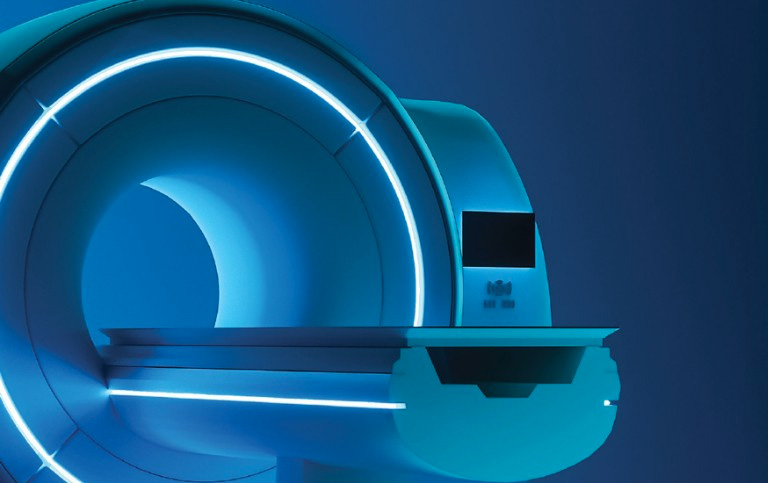

featured studies
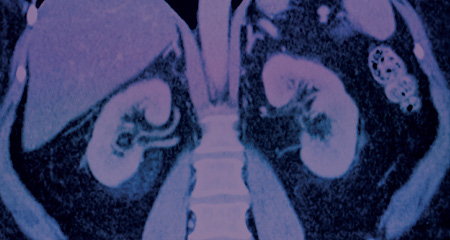
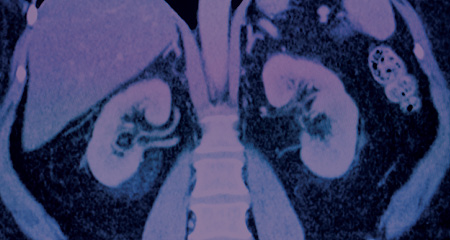

poc creatinine testing for kidney function measurement prior to contrast-enhanced diagnostic imaging
Acute kidney injury (AKI) can occur rarely in patients exposed to iodinated contrast and result in contrast-induced AKI (Cl-AKI). A key risk factor is the presence of pre-existing chronic kidney disease (CKD); therefore, it is important to assess patient risk and obtain kidney function measurement prior to administration.3
Point-of-care testing for kidney function is an attractive method for providing a rapid result, particularly in the emergency department, acute medical unit or critical care setting where there is a need to make immediate decisions regarding treatment.4



wythenshawe hospital radiology department saves time and money with point-of care-testing
Achieving up-to-date creatinine test results can be a major challenge for radiology departments. If recent results aren't available, procedures requiring contrast dye must be cancelled-often at the last minute.
With cancelled scans costing the hospital a minimum of £250, avoiding cancellations by having immediate creatinine test results can have a significant financial impact Learn how this major acute teaching hospital (that scans for more than 16,000 scheduled patients annually) tackled this probem through the adoption of point-of-care testing.
related products
our newest instrument makes diagnostic testing easier than ever
The i-STAT Alinity was built on the proven technology of the i-STAT 1 System, and is an easy-to-use, portable blood analyzer that delivers real-time, lab-quality diagnostic test results. The i-STAT Alinity's award-winning design features a more intuitive interface that simplifies the testing process even further, allowing for minimal operator training. i-STAT Alinity is the i-STAT family's most advanced testing solution.
References
- FDA ALERT (6/2006, updated 12/2006 and 5/23/2007), Gadolinium-Based Contrast Agents for Magnetic Resonance Imaging
- NICE (Nat'l Institue for Health and Care Excellence). Point-of-care creatinine devices to assess kidney functions before CT imaging with intravenous contrast.
- & 4. Snaith, B. et. al. Clin Chem Lab Med. 2018 26;56(8): 1269-1276.doi: 10.1515/cclm-2018-0128





